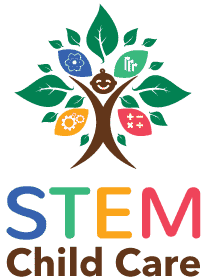Personalized Learning in STEM Childcare: Supporting Every Child’s Growth
Personalized Learning in STEM Childcare: Supporting Every Child’s Growth
In today’s rapidly evolving world, education must be as dynamic as the learners it serves. Personalized learning in STEM (Science, Technology, Engineering, and Mathematics) childcare plays a crucial role in fostering curiosity, creativity, and problem-solving skills from an early age. By tailoring learning experiences to individual needs, STEM-focused childcare centers can ensure that every child reaches their full potential, building the confidence and skills necessary for future success.
What Is Personalized Learning in STEM Childcare?
Personalized learning is an educational approach that adapts teaching methods, materials, and pacing to meet the unique needs of each child. Unlike a one-size-fits-all curriculum, personalized learning in STEM childcare embraces diversity in learning styles, interests, and abilities.
At STEM Childcare, this philosophy is deeply ingrained in their teaching approach. Through hands-on activities, exploratory play, and real-world problem-solving, educators create an environment where young learners are encouraged to think critically, experiment freely, and develop a lifelong love for discovery.
Key Elements of Personalized Learning in STEM Childcare
1. Child-Centered Curriculum Development
A strong STEM childcare program aligns educational activities with each child’s developmental stage, interests, and learning preferences. Instead of rigid lesson plans, educators use project-based learning and interactive experiments to keep children engaged.
For example, if a child shows a keen interest in nature, activities could include observing plant growth through a microscope or creating simple models of the water cycle. Similarly, a child fascinated by technology might explore basic coding through interactive games and robotics.
2. Hands-On Learning for Active Engagement
Children learn best when they can interact directly with the concepts being taught. STEM Childcare integrates hands-on learning experiences such as:
- Building simple structures using blocks, magnets, or recycled materials to introduce engineering concepts.
- Conducting science experiments with everyday materials to encourage scientific inquiry.
- Exploring numbers and patterns through engaging math-based activities.
By making learning tangible, children not only understand STEM concepts more effectively but also develop essential problem-solving skills.
3. Encouraging Collaboration and Independent Thinking
A balanced mix of teamwork and independent exploration is a cornerstone of personalized learning. At STEM Childcare, children work together on group projects that foster social skills, collaboration, and critical thinking. At the same time, they are encouraged to explore individual interests, allowing them to build confidence in their own ideas.
For instance, a team-based activity might involve designing a simple machine together, while an independent learning station might allow a child to explore a coding challenge at their own pace.
4. Adaptive Learning and Assessment
Personalized learning requires ongoing assessment and adaptation to ensure each child is progressing at their own optimal pace. Rather than traditional testing, educators at STEM Childcare observe, document, and analyze children’s learning behaviors to tailor activities accordingly.
For example, if a child excels in spatial reasoning but struggles with numerical concepts, their learning plan may include more visual math games or interactive counting exercises to reinforce those skills.
5. Integrating Real-World Applications
STEM education is most effective when children understand how it connects to their daily lives. STEM Childcare emphasizes real-world learning experiences by incorporating activities such as:
- Gardening projects to teach environmental science.
- Simple coding exercises to introduce problem-solving in technology.
- Exploring physics through playground experiments (e.g., understanding gravity by experimenting with slides and ramps).
These hands-on, practical applications enhance comprehension and retention, making STEM learning both engaging and meaningful.
The Benefits of Personalized Learning in STEM Childcare
- Boosts confidence and motivation: Children feel empowered when learning is tailored to their strengths and interests.
- Encourages lifelong curiosity: A personalized STEM approach nurtures a love for inquiry and discovery.
- Builds problem-solving skills: STEM activities challenge children to think critically and find creative solutions.
- Supports diverse learning styles: Whether a child learns best through visuals, hands-on activities, or storytelling, personalized learning ensures they stay engaged.
- Prepares children for future success: STEM skills are essential in today’s technology-driven world, and early exposure provides a strong foundation for academic and career growth.
At STEM Childcare, personalized learning is not just a method—it’s a mission. By focusing on child-centered, hands-on, and adaptive learning experiences, educators create an environment where every child’s unique abilities are nurtured and celebrated. Through this approach, children develop the curiosity, resilience, and critical-thinking skills needed to thrive in an increasingly complex world.
Personalized learning in STEM childcare isn’t just about education—it’s about empowering the next generation of innovators, problem solvers, and leaders.




